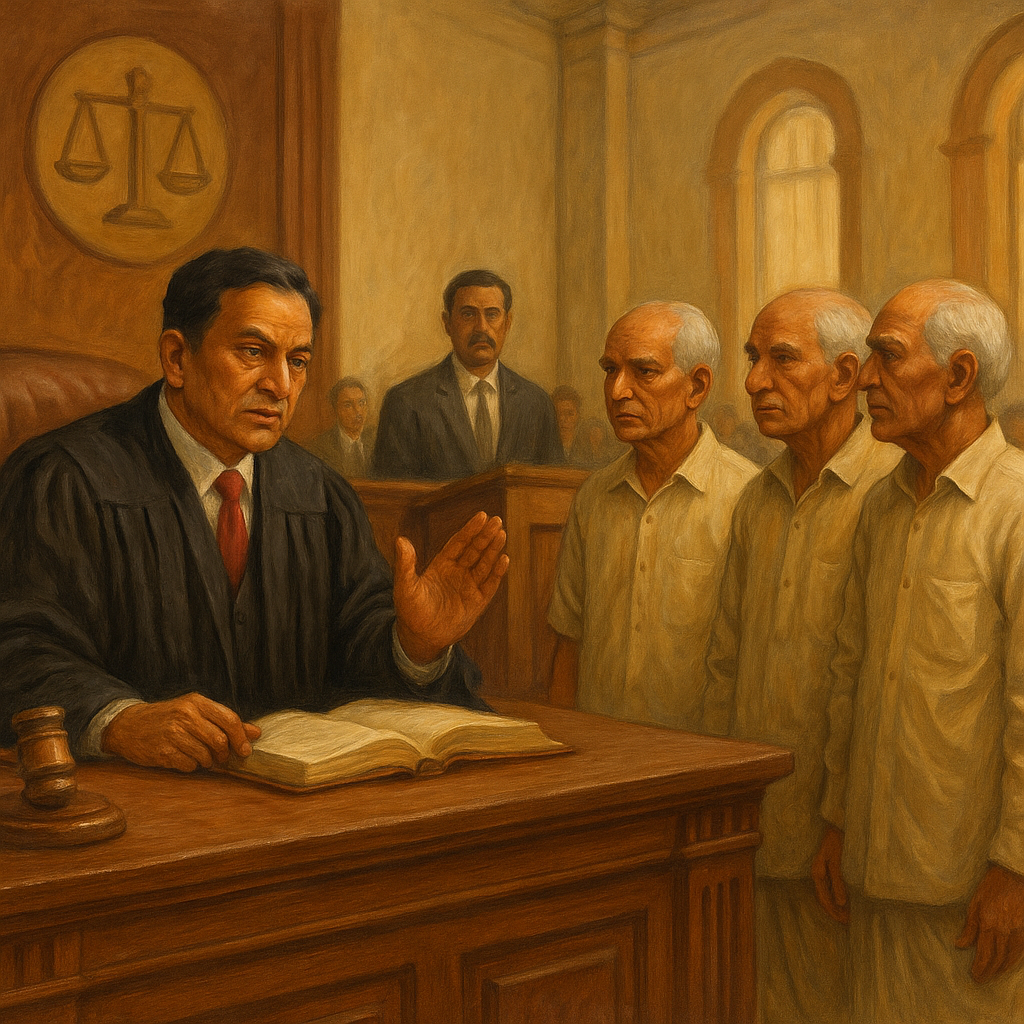Simplified Explanation of the Judgment
In a recent decision, the Patna High Court dismissed a petition filed by three retired judicial officers who challenged the denial of full pension benefits. The petitioners had retired as Additional Chief Judicial Magistrates (ACJMs) and contended that due to delays in their appointments, they could not complete the required 20 years of service necessary for full pension eligibility. They further argued that their pensions were wrongly reduced on a proportionate basis.
The petitioners made two key arguments. First, they claimed that the delay in their appointments, despite having qualified earlier, caused them to fall short of the service duration required for full pension. Second, they challenged a government resolution that enforced proportionate pension for those who served between 10 to 20 years.
The Court, after hearing all parties, clarified that delays in appointment could not justify retrospective benefits after nearly two decades. As appointments were made back in 2001, and the officers retired much later, the qualifying service period could only be counted from their actual date of joining.
Regarding the second point, the Court referred to multiple government resolutions and a clarification issued in 2019 by the Bihar Finance Department. These documents outlined that:
- Full pension (50% of the last drawn salary) is only applicable to judicial officers who have completed at least 20 years of service.
- Officers serving more than 10 years but less than 20 years are entitled only to proportionate pension.
The confusion arose from an earlier 2011 resolution that inadvertently omitted this clarification, leading to ambiguity. However, a 2019 resolution corrected this oversight, aligning it with earlier policy and a Supreme Court directive dated 26 July 2010 based on Justice Padmanabhan Committee’s recommendations.
The Court found no legal fault in the government’s position and concluded that the clarification issued in 2019 was valid, reasonable, and in line with established rules. Thus, the petition was dismissed.
Significance or Implication of the Judgment
This judgment reinforces the importance of adhering to clearly stated pension rules and service conditions for government and judicial officers. It confirms that delayed appointments cannot be used as a ground for retrospective benefits unless explicitly recognized by policy or law. For the general public and retired government servants, this case underscores the necessity of completing stipulated service years for full retirement benefits. It also demonstrates that courts rely heavily on official resolutions and previous judicial pronouncements when dealing with pension disputes.
Legal Issue(s) Decided and the Court’s Decision
- Whether delayed appointments can be a ground to claim pension for unserved years?
- Court’s Decision: No. Time spent waiting for appointment cannot count toward qualifying service.
- Whether full pension is admissible for judicial officers who served less than 20 years but more than 10 years?
- Court’s Decision: No. Such officers are eligible only for proportionate pension based on actual years served.
Judgments Referred by Parties
- Naresh Kumar v. Union of India & Ors., W.P.(C) 3860/17, Delhi High Court, decided on 06.12.2018
Judgments Relied Upon or Cited by Court
- Supreme Court Order dated 26.07.2010 based on Justice Padmanabhan Committee recommendations (referred, not quoted)
Case Title
Barhu Prasad & Ors. v. State of Bihar & Ors.
Case Number
Civil Writ Jurisdiction Case No. 14588 of 2019
Citation(s)
2020 (1) PLJR 216
Coram and Names of Judges
Hon’ble the Chief Justice Amreshwar Pratap Sahi
Hon’ble Mr. Justice Ashutosh Kumar
Names of Advocates and who they appeared for
- Mr. Shailendra Kumar Jha and Mr. Dilip Kumar Jha — for the Petitioners
- Mr. Sunil Kumar Mandal (SC-3) and Mr. Bipin Kumar (AC to SC-3) — for the State
- Mr. Mrigank Mauli — for the Patna High Court
- Mr. Amar Nath Singh — for the Accountant General
Link to Judgment
https://patnahighcourt.gov.in/viewjudgment/MTUjMTQ1ODgjMjAxOSMxI04=-Ic2q95ClCIc=
If you found this explanation helpful and wish to stay informed about how legal developments may affect your rights in Bihar, you may consider following Samvida Law Associates for more updates.









